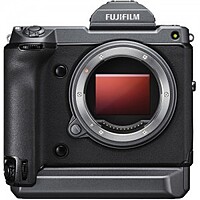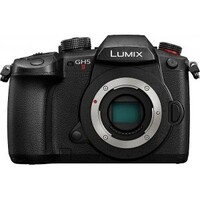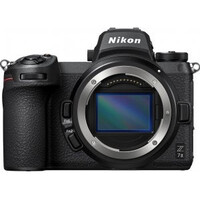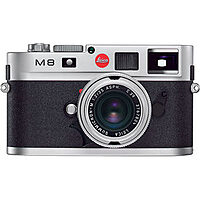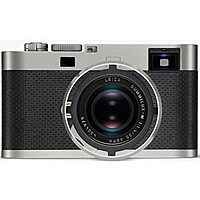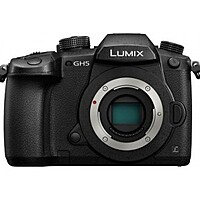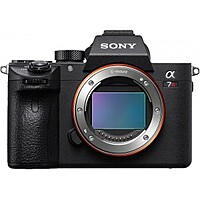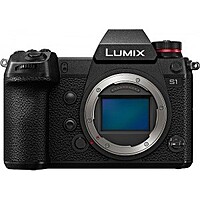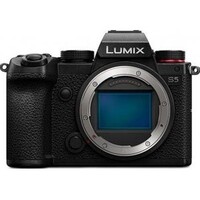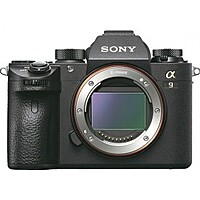Leica M Typ 240 with Fujifilm GFX 50S Overview
Let's compare FujiFilm GFX 50S with Leica M Typ 240.
These models are included in the Pro Mirrorless cameras.
Fujifilm GFX 50S was released in 2017, and Leica M Typ 240 in 2012.
GFX 50S is newer, which is a plus. M Typ 240 5 years older.
5 years, this is a pretty big age difference.
The sensor resolution of GFX 50S is greater than that of M Typ 240. The difference of 27 MP is quite a lot.
The more megapixels the camera has, the more detailed and clear the picture will be. The number of megapixels will also affect the maximum size of the photos, which then can be printed without loss of quality.
The minimum ISO value for these cameras is the same and is .
A larger maximum ISO allows you to take good pictures in the dark.
The maximum ISO value for these cameras is the same and is .
Both cameras feature a 3-inch tilting screen.
GFX 50S has electronic viewfinder, and the M Typ 240 doesn’t have.
Viewfinder GFX 50S has a higher resolution of 3690k dots, M Typ 240 has a resolution of no electronic viewfinderk dots.
Burst mode, also called continuous shooting mode, sports mode or continuous high speed mode, is a shooting mode in still cameras. Fujifilm GFX 50S has 3.0 fps continuous shooting.
Fujifilm GFX 50S has 3.0 fps continuous shooting.
| General |
GFX 50S |
M Typ 240 |
| Brand |
FujiFilm
|
Leica
|
| Model |
GFX 50S |
M Typ 240 |
| Announced |
January, 2017 |
September, 2012 |
| Body Type |
Mid-size SLR |
Rangefinder-style mirrorless |
| Lens |
| Lens Mount |
Fujifilm G |
Leica M |
| Manual Focus |
|
|
| Focal Lens Multiplier |
0.79 |
1 |
| Number of Lenses |
11 |
59 |
| Macro Focus Range |
n/a |
n/a |
| Screen |
| Screen Size |
3" |
3" |
| Screen Type |
Tilting |
Fixed |
| Screen Resolution |
2360k pixels |
920k pixels |
| Touch Screen |
|
|
| Live View |
|
|
| Viewfinder |
| Viewfinder |
Electronic |
Optical (rangefinder) |
| Viewfinder Resolution |
3690 |
| Viewfinder Coverage |
100% |
100% |
| Viewfinder Magnification |
1.07 |
0.68 |
| Autofocus |
| AF Touch |
|
|
| AF Continuous |
|
|
| AF Single |
|
|
| AF Tracking |
|
|
| AF Selective |
|
|
| AF Center |
|
|
| AF Multi Area |
|
|
| AF Live View |
|
|
| AF Face Detection |
|
|
| AF Contrast Detection |
|
|
| AF Phase Detection |
|
|
| Number of Focus Points |
117 |
0 |
| Number of Cross Focus Points |
0 |
|
| Photography Features |
| RAW Support |
|
|
| Min Shutter Speed |
1/360 sec |
1/60 sec |
| Max Shutter Speed |
1/4000 sec |
1/4000 sec |
| Continuous Shooting |
3.0 fps |
3.0 fps |
| Shutter Priority |
|
|
| Aperture Priority |
|
|
| Manual Exposure Mode |
|
|
| Exposure Compensation |
|
|
| Custom White Balance |
|
|
| Image Stabilization |
|
|
| Built-in Flash |
|
|
| Flash Range |
no built-in flash |
no built-in flash |
| Flash Modes |
Auto, standard, slow sync, manual, off |
Front Curtain, Rear Curtain, Slow sync |
| External Flash |
|
|
| AE Bracketing |
|
|
| AE Bracketing Range |
±5 EV |
±3 EV |
| WB Bracketing |
|
|
| Sensor |
| Sensor Size |
Medium format |
Full frame |
| Sensor Type |
CMOS |
CMOS |
| Sensor Dimensions |
mm |
36 x 24 mm |
| Sensor Area |
0.0 mm² |
864.0 mm² |
| Sensor Resolution |
51 MP |
24 MP |
| Max Image Resolution |
8256 x 6192 |
5952 x 3976 |
| Max Native ISO |
12800 |
6400 |
| Min Native ISO |
100 |
100 |
| Max Boosted ISO |
102400 |
0 |
| Min Boosted ISO |
50 |
0 |
| Video Features |
| 4K |
|
|
| Max Video Resolution |
1920 x 1080 |
1920 x 1080 |
| Video Formats |
MPEG-4, H.264 |
Motion JPEG |
| Timelapse Recording |
|
|
| Microphone Port |
|
|
| Headphone Port |
|
|
| Exposure Modes |
| Multi-Segment |
|
|
| Average |
|
|
| Spot |
|
|
| Partial |
|
|
| AF-Area |
|
|
| Center Weighted |
|
|
| Connectivity |
| GPS |
None |
Optional |
| Wireless Connectivity |
Built-In |
Built-In |
| Bluetooth |
|
|
| HDMI |
|
|
| USB |
USB 3.0 (5 GBit/sec) |
USB 2.0 (480 Mbit/sec) |
| Battery |
| Battery Life |
400 shots |
500 shots |
| Battery Type |
Battery Pack |
Battery Pack |
| Battery Model |
NP-T125 |
|
| Physical |
| Weight |
740 g |
680 g |
| Physical Dimensions |
148 x 94 x 91 mm |
139 x 80 x 42 mm |
| Environmental Sealing |
|
|
| Water Proof |
|
|
| Dust Proof |
|
|
| Shock Proof |
|
|
| Crush Proof |
|
|
| Freeze Proof |
|
|
| Shock Proof |
|
|
| Storage |
| Storage Type |
SD/SDHC/SDXC (dual slots, UHS-II supported) |
SD/SDHC/SDXC |
| Storage Slots |
2 |
1 |
| Other Features |
| Self Timer |
|
|
| Selfie Friendly |
|
|
Interesting Pro Mirrorless

